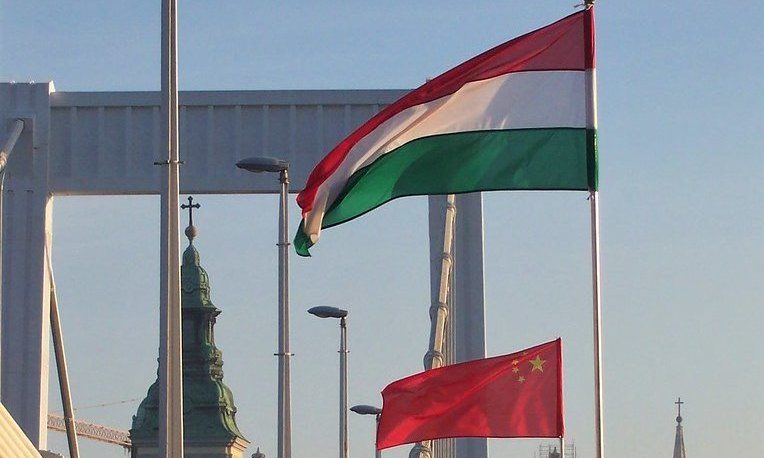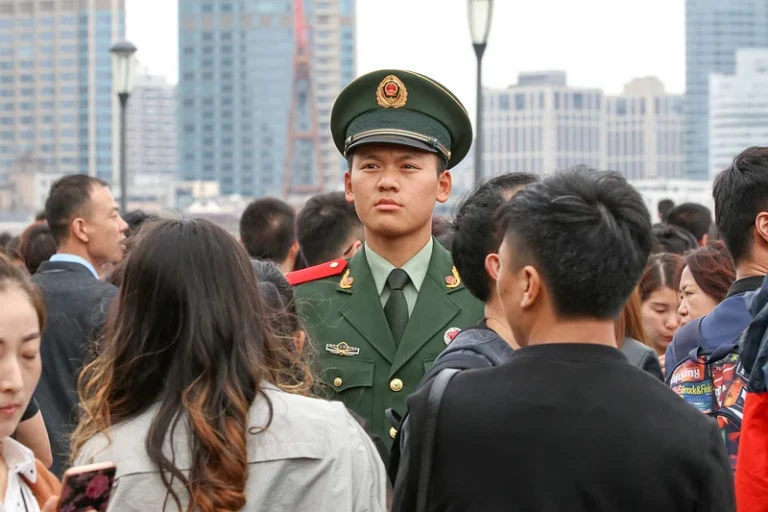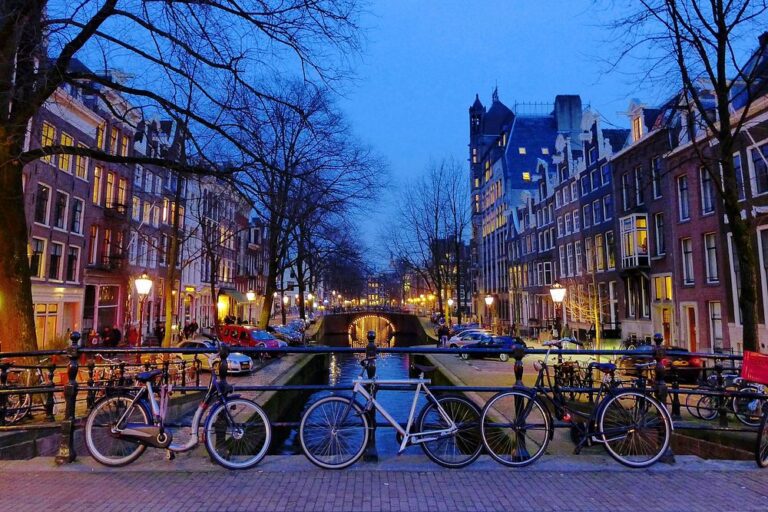Hungary-China Relations: Is it Time for a Change?

This article is part of a series of articles authored by young, aspiring China scholars under the Future CHOICE initiative.
In the past decade, the CEE region has often been singled out for cozy ties with China.
Despite this characterization, China’s charm in the region seems to be withering away. This trend was perhaps best demonstrated by the lukewarm participation in 2021’s 17+1 (now 16+1) summit bookended by Lithuania’s withdrawal from the group and current rift with Beijing. The shift in alignment is certainly making waves, as even US-based institutions are now eschewing the familiar “trojan horse” trope.
Nevertheless, not all countries are on board with the turning tide.
Foremost among those nations is Hungary under Prime Minister Viktor Orbán, which has earned the title of Beijing’s closest European ally. Hungary was the first European country to join China’s Belt and Road Initiative and maintains a multifaceted strategic partnership with Beijing in several important fields, including vaccines production and digital industries.
However, recent domestic events indicate Hungary’s approach to China lacks popular support and, especially ahead of 2022 elections, might be close to a tectonic shift.
The upcoming election seems poised to be the tightest race the country has seen in a decade, with Orbán-challenger Péter Márki-Zay gaining momentum rapidly. Prime Minister Orbán will be competing against a patchwork of six opposition parties spanning the political spectrum. At present, polls suggest that the unprecedented alliance has a real chance of winning.
Hungary-China Relations at a Glance
Of course, the story of Hungary and China does not begin with the present election cycle. Indeed, Budapest and Beijing have had a tumultuous relationship since the fall of communist regime in the country.
Perhaps surprisingly, the relations were at their lowest during Viktor Orbán’s first term, 1998-2002, as he openly criticized Beijing’s human rights violations and emphasized the ideological differences. The Hungarian consulate in Shanghai was closed down and Orbán welcomed the Dalai Lama in Budapest during this period, exemplifying his previously hawkish tenor. As a young activist in 1989, Orbán and his Fidesz party organized a protest in front of the Chinese Embassy and equated the suffering and dire conditions of Chinese people with those of Hungarians during the revolution in 1956.
The sharp bend in his China policy today is, however, not without prelude.
Relations gained renewed momentum under former Hungarian Prime Minister Péter Medgyessy, who succeeded Orbán in 2002. In particular, his prime ministerial trip to China, after a 44-year hiatus, was later referred to as a “breakthrough” amid the turbulent path set by Orbán’s initial hawkishness. This visit established Hungary’s designation as the number one regional economic cooperation partner for China and was followed by significant growth in trade volumes. Medgyessy also established the ministerial post responsible for economic relations between Hungary and China. At the time, Orbán’s Fidesz party had condemned the unconditional opening.
However, fast-forwarding to 2015, Hungarian Minister of Foreign Affairs, Péter Szijjártó, awarded Medgyessy for his efforts to strengthen the “Hungary-China friendship”. Hungary under Ferenc Gyurcsány, who succeeded Medgyessy in 2004, further intensified the relationship with China and initiated more bilateral agreements to boost cooperation from business to culture to academia. In 2011, under Orbán’s second term, Chinese Premier Wen Jiabao visited Budapest and signaled China’s commitment to buy Hungarian debt. The meetings also saw 12 new economic agreements and plans for improving mutual understanding through culture, education, and technology.
An Underlying Consensus
Although the Hungary-China relationship has been subject to considerable international attention in recent years, China did not feature heavily in domestic political debates until recently.
Most parties generally accepted China as an important economic partner from the mid-2000s and did not object to Orbán’s advocacy for close ties. The lack of transparency around Chinese investment in the country in recent years and especially the opacity of the Budapest-Belgrade railway project kicked up some dust and generated intense parliamentary debates, but the opposing parties cited the shady conditions and were not against the projects themselves.
Overall, the underlying consensus was such that Hungary could be the primary target of Chinese investment and economic cooperation in the CEE region, reaping broad-ranging benefits for the country. The prospect of economic gains overshadowed the ideological and value-based differences. At least, this was the case up until very recently when the proposed plans for a Budapest campus of the Shanghai-based Fudan University evoked widespread protests.
Political Tactic or Genuine Conviction?
The opposition parties quickly capitalized on the public sentiment and began to vehemently criticize the plans and the Orbán government’s China policy. Budapest mayor, Gergely Karácsony, who has since stepped down in favor of Márki-Záy as candidate for prime minister, gave a speech during the demonstrations and highlighted the “huge differences between Hungary and China in terms of human rights and democracy.”
The opposition parties also sent a joint letter to Chinese President Xi Jinping and committed to halt the project together with the Budapest-Belgrade railway plan. However, what was often missed in the media reports is the part of the letter relating to ending the projects “under the current conditions.” Although the opposition recently amplified their disapproval of the country’s current policy towards China, there is no clear indication whether it is only a political tactic building on the public sentiment or a genuine conviction.
The most prominent opposition figures, Péter Márki-Zay, Mayor of a Southern Hungarian city and founder of the Everybody’s Hungary Movement, and Klára Dobrev from the social-liberal Democratic Coalition both expressed negative views on the country’s current relations with China. Márki-Zay, who emerged on top of Dobrev in the primaries to become the opposition’s candidate for prime minister, has stated that he would follow the lead of the EU and US in foreign policy related questions, including on China and has previously condemned the government’s decision to forego EU-secured vaccines to purchase Chinese vaccines.
It remains to be seen how the opposition would build a coalition once in government and further who would take on leading positions within a new government. The opposition’s provisional policy manifesto (A Közös Alap) provides some clues as to how Hungary’s foreign policy would look like, but these personnel issues certainly leave open questions.
The platform also makes two mentions of China. It explicitly states that close alliances with authoritarian regimes, including China under the Chinese Communist Party, are contradictory to Hungary’s core values and present national security risks. It also stresses the distrust the current pro-Beijing policies evoke in Hungary’s transatlantic allies and calls for decisive action against China’s assertive attempts to gain influence in the country.
Orbán’s Next Step
Since controversy erupted over Fudan University’s campus in Budapest, the Orbán government has been rather silent on China related matters. The demonstrations mobilized thousands of people in the capital and polls suggest that even Fidesz supporters are among those who oppose the project.
However, what primarily moved the crowds was not the potential malign influence of a Chinese campus in the capital, but the rampant corruption surrounding the project.
Given the nearing election, another such scandal could be detrimental for Orbán’s chances of re-election. Regarding the Fudan campus, the government agreed to hold a referendum, initiated by Karácsony, once the plans are finalized in the next three years. Though, the motion did not disclose any additional information.
It is unlikely that the current government will meaningfully alter its approach to China, but it might reduce the fanfare to attract less scrutiny. For example, the recently announced opening of the first outside-of-China plant of the Shanghai-based SEMCORP group in Debrecen received relatively little media coverage compared to other Chinese projects in the country. Adding another potential factor into the mix, an opposition politician has recently won the second instance and final lawsuit against the government’s secrecy about the Budapest-Belgrade railway project. According to the ruling, the Ministry of Foreign Affairs must publish the loan agreement with the Chinese side. However, there has been no reaction from the government so far.
Yet, the case of Fudan is an outlier.
For example, there was no outrage over Huawei’s participation in Hungary’s 5G network or the recently announced plans for a smart railway hub to be managed by the Chinese tech giant. Despite the growing concerns about the safety and security risks associated with Huawei, the company enjoys a stable environment in the country, well demonstrated by the fact that Hungary hosts Huawei’s largest supply center outside of China. To add to its presence, Huawei opened a regional R&D center in Budapest just last year.
While it seems clear that an opposition victory would break the current dynamics, the extent the relationship could be scaled back remains an open question. In any case, defeating Orbán is far from a foregone conclusion in itself. This is especially so as the architect of the EU’s first “illiberal democracy” is determined to keep his power at all costs.
Written by
Réka Koleszár
RekaKoleszarRéka Koleszár is a PhD student at National Chengchi University in Taipei, Taiwan and a Program Assistant at the European Center for Populism Studies. She holds master’s degrees in Political Science and International Relations with a focus on East Asia, has completed a traineeship at the Council of the EU, and has experience as a Program Assistant at the European Policy Centre.


